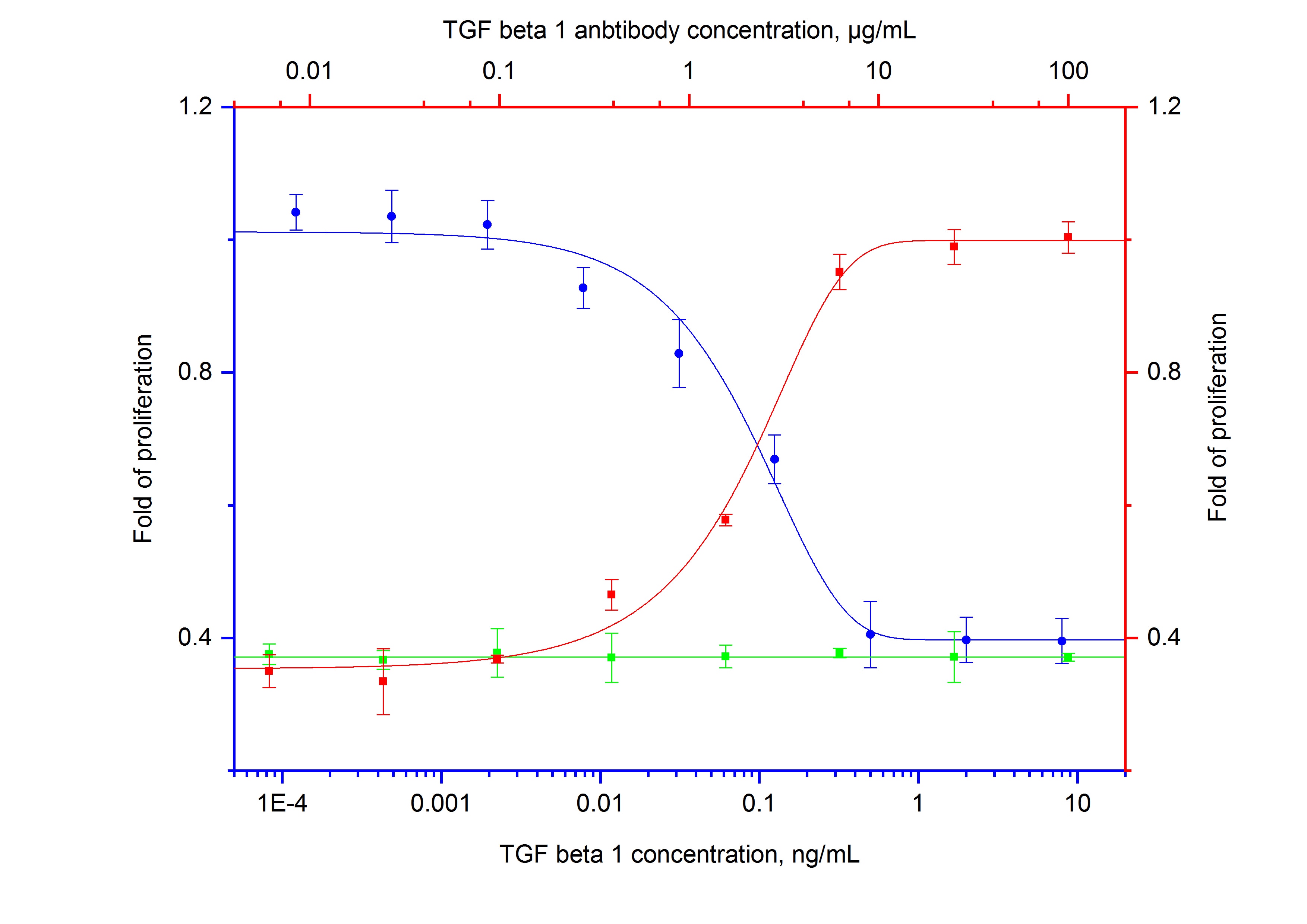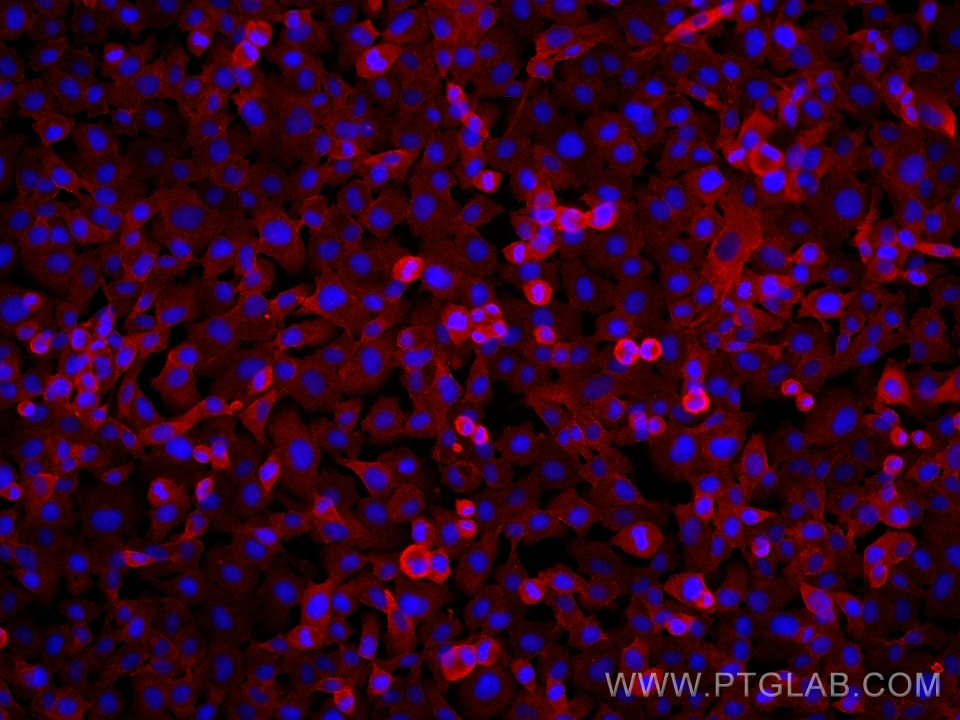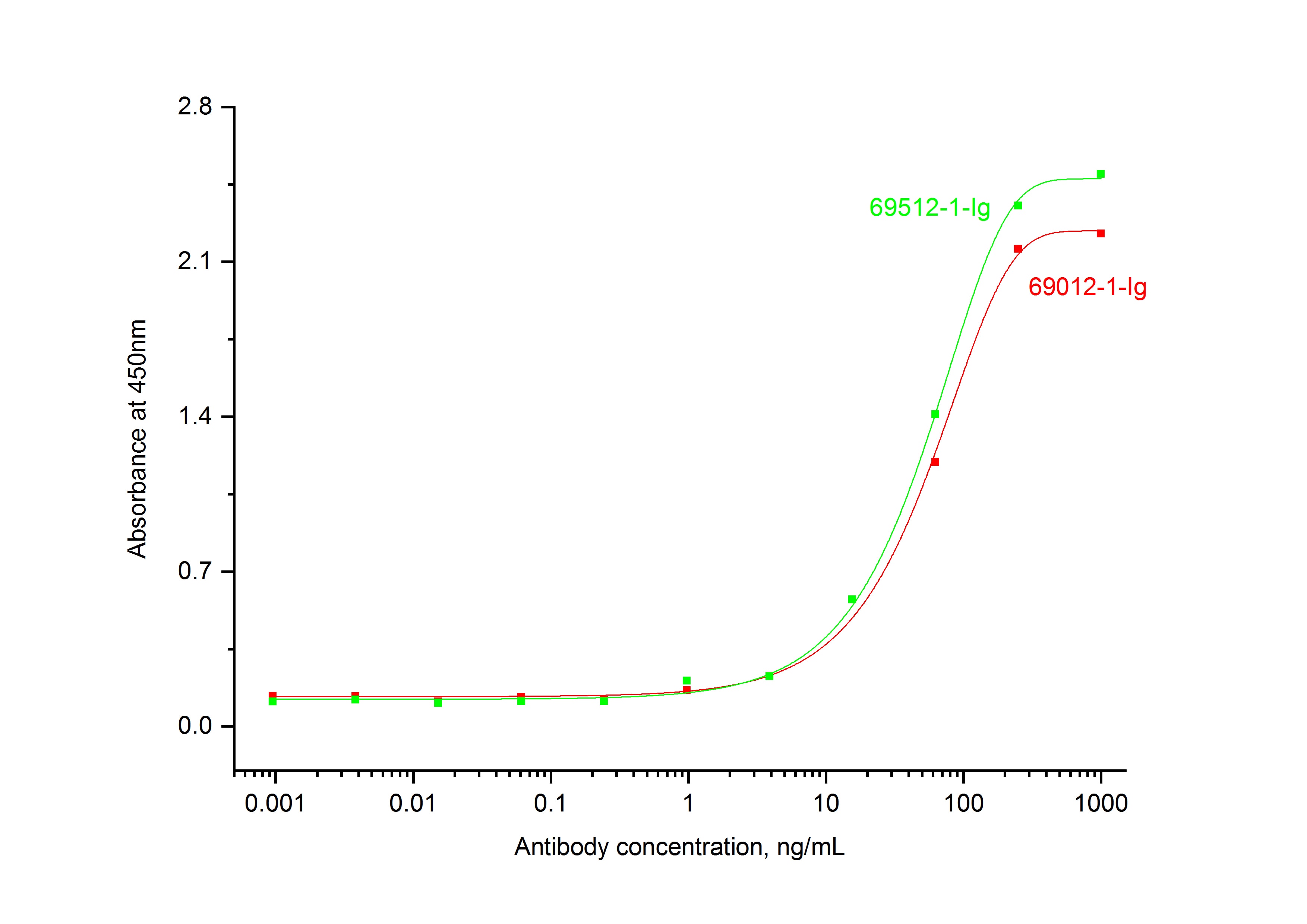Anticorps Monoclonal anti-NeutraControl TGF beta 1
NeutraControl TGF beta 1 Monoclonal Antibody for IF/ICC, ELISA, Non-Neutralization
Hôte / Isotype
Mouse / IgG1
Réactivité testée
Humain
Applications
IF/ICC, ELISA, Non-Neutralization
Conjugaison
Non conjugué
CloneNo.
1D3D11
N° de cat : 69512-1-Ig
Synonymes
Galerie de données de validation
Informations sur le produit
69512-1-Ig cible TGF beta 1 dans les applications de IF/ICC, ELISA, Non-Neutralization et montre une réactivité avec des échantillons Humain
| Réactivité | Humain |
| Hôte / Isotype | Mouse / IgG1 |
| Clonalité | Monoclonal |
| Type | Anticorps |
| Immunogène | human Humankine TGF beta 1 protein HZ-1011 |
| Nom complet | transforming growth factor, beta 1 |
| Masse moléculaire calculée | 44 kDa |
| Symbole du gène | TGFB1 |
| Identification du gène (NCBI) | 7040 |
| Conjugaison | Non conjugué |
| Forme | Lyophilized Powder |
| Méthode de purification | Purification par protéine G |
| Tampon de stockage | Sterile PBS |
| Endotoxin | <0.1 EU/μg |
| Reconstitution | This product was lyophilized from a 0.2 μm filtered solution in PBS. Reconstitute at 1.0 mg/mL in sterile H2O before use. |
| Stability and Storage | Lyophilized antibodies are stable for 1 year from the date of receipt if stored between (-20°C) and (-80°C). Upon reconstitution we recommend that the solution can be stored at (4°C) for short term or at (-20°C) to (-80°C) for long term. Repeated freeze thaw cycles should be avoided with reconstituted products. |
Informations générales
TGFB, also named as LAP and TGFB1, is a multifunctional peptide that controls proliferation, differentiation, and other functions in many cell types. TGFB acts synergistically with TGFA in inducing transformation. It also acts as a negative autocrine growth factor. Dysregulation of TGFB activation and signaling may result in apoptosis. Many cells synthesize TGFB and almost all of them have specific receptors for it. TGFB positively and negatively regulates many other growth factors. It plays an important role in bone remodeling as it is a potent stimulator of osteoblastic bone formation, causing chemotaxis, proliferation and differentiation in committed osteoblasts. It is highly expressed in bone. Mutation of TGFB are the cause of Camurati-Engelmann disease (CED) which known as progressive diaphyseal dysplasia 1 (DPD1).
This antibody is a neutralizing control antibody for TGF beta 1, the immunogen is the same as Neutrakine 69012-1-Ig but could not neutralize human TGF beta 1.
Protocole
| Product Specific Protocols | |
|---|---|
| IF protocol for NeutraControl TGF beta 1 antibody 69512-1-Ig | Download protocol |
| Standard Protocols | |
|---|---|
| Click here to view our Standard Protocols |




